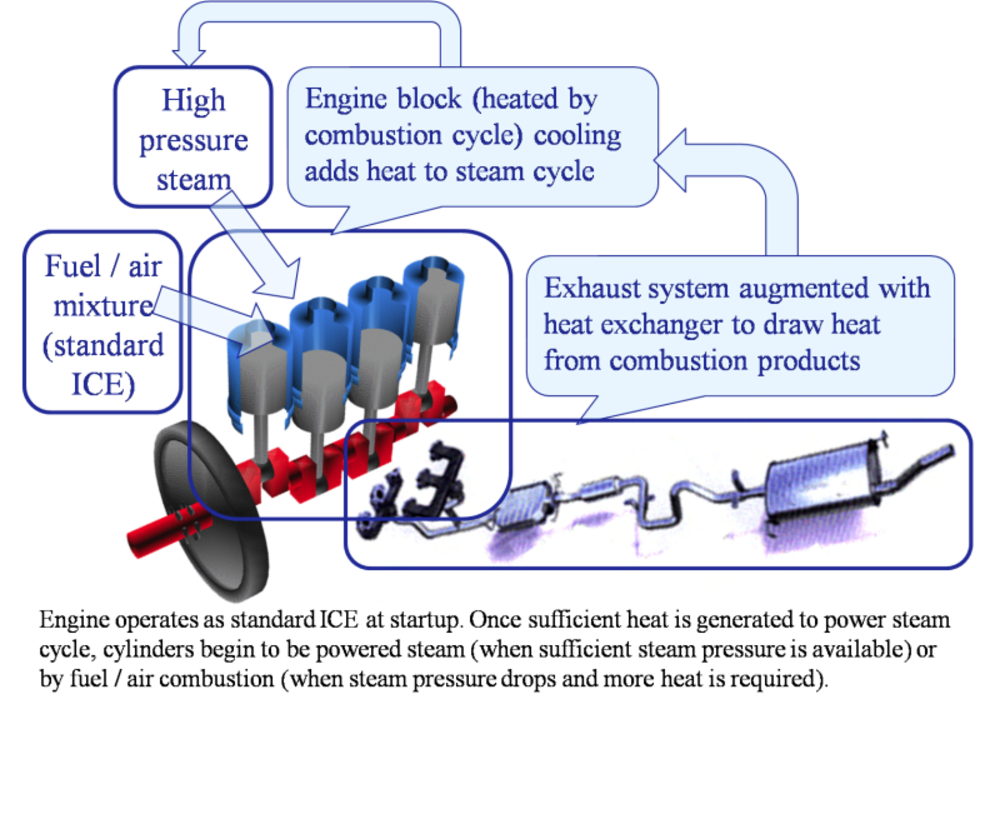It seems as though there is an incredible amount of wasted energy in current internal combustion engine designs, especially in terms of the amount of thermal energy that in one way or another is just vented to the atmosphere. Significant amounts of thermal energy are wasted through the vehicle's radiator, while still more is lost through the exhaust system and exhaust products. My idea is to combine a conventional internal combustion engine with a steam engine where the steam is generated by the heat of the combustion cycle. In its simplest form, one could take a standard four cylinder engine and power two of the cylinders by combustion and two by steam generated by cooling of the engine and by extracting all possible heat out of the combustion process once the products leave the cylinder. One potential drawback for this design is that the engine would operate at startup only under the power of two cylinders until sufficient heat is built up to power the steam cycle. A more complicated design may have cylinders that are powered by either by combustion or steam, just a matter of valving and mimimum steam pressure. In this manner, the engine could transition at startup from full combustion to mixed / hybrid operation, having the combustion process fire only when additional pressure is required. It's just a guess, but it would seem as though this modification would double (or more) the current fuel economy of standard internal combustion engines.
Like this entry?
-
About the Entrant
- Name:Jeff Robinson
- Type of entry:individual
- Patent status:none

